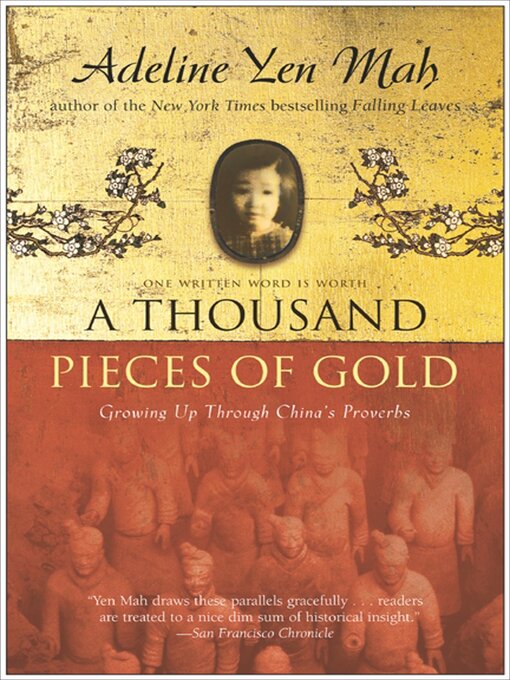In this poignant memoir the New York Times bestselling author of Falling Leaves, Adeline Yen Mah, provides a fascinating window into the history and cultural soul of China. Combining personal reflections, rich historical insights, and proverbs handed down to her by her grandfather, Yen Mah shares the wealth of Chinese civilization with Western readers. Exploring the history behind the proverbs, she delves into the lives of the first and second emperors and the two rebel warriors who changed the course of Chinese life, adding stories from her own life to beautifully illustrate their relevance and influence today.
- New Non-fiction eBooks
- Most popular
- New Fiction eBooks
- New YA eBook
- YA Romantasy
- New York Times Bestsellers - Adult Fiction eBooks (Updated April 1st)
- New York Times Bestsellers - Adult Non-Fiction eBooks (Updated April 1st)
- See all ebooks collections
- New Non-fiction eAudiobooks
- Most popular
- New Fiction eAudiobooks
- New YA eAudio
- New York Times Bestsellers - Adult Fiction Audiobooks (Updated April 1st)
- New York Times Bestsellers - Adult Non-Fiction Audiobooks (Updated April 1st)
- See all audiobooks collections
- Popular magazines
- Business & Finance Magazines
- Cooking, Food & Drink
- Craft Magazines
- Fashion Magazines
- Gaming
- Gardening and Landscape
- Kids Magazines
- Health and Fitness Magazines
- Hobbies
- House and Home
- Men's magazines
- Science & Technology Magazines
- See all magazines collections


